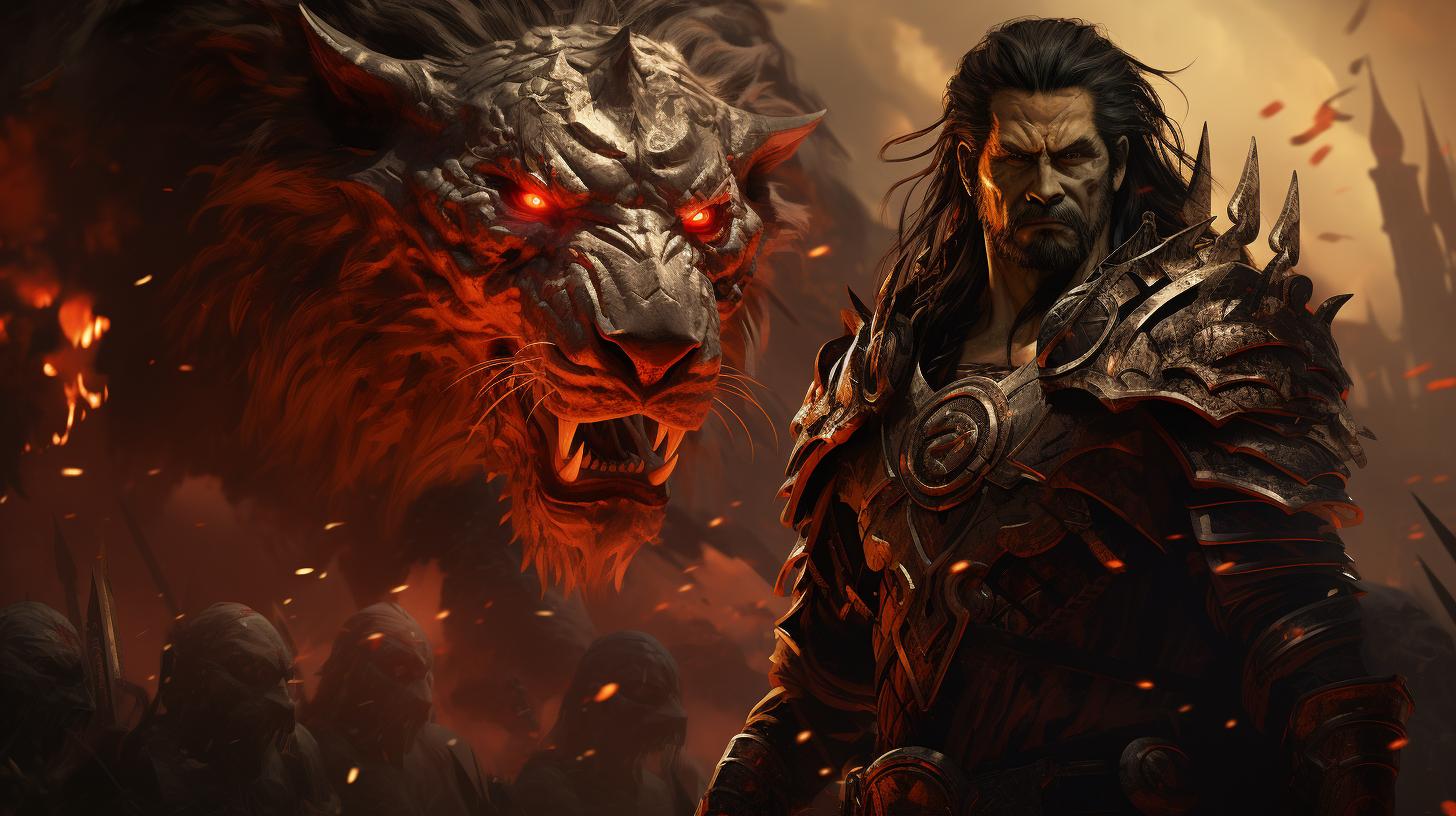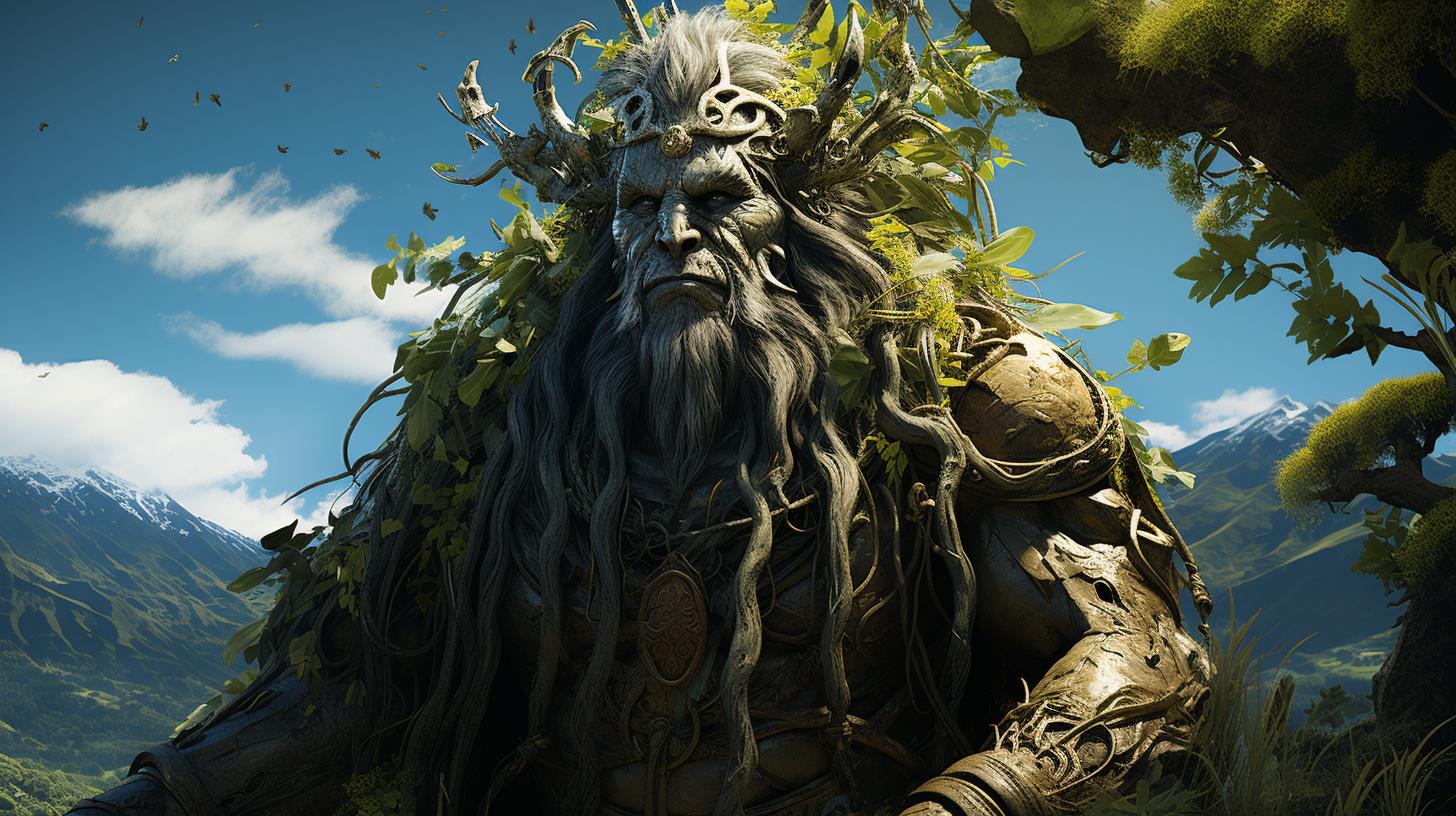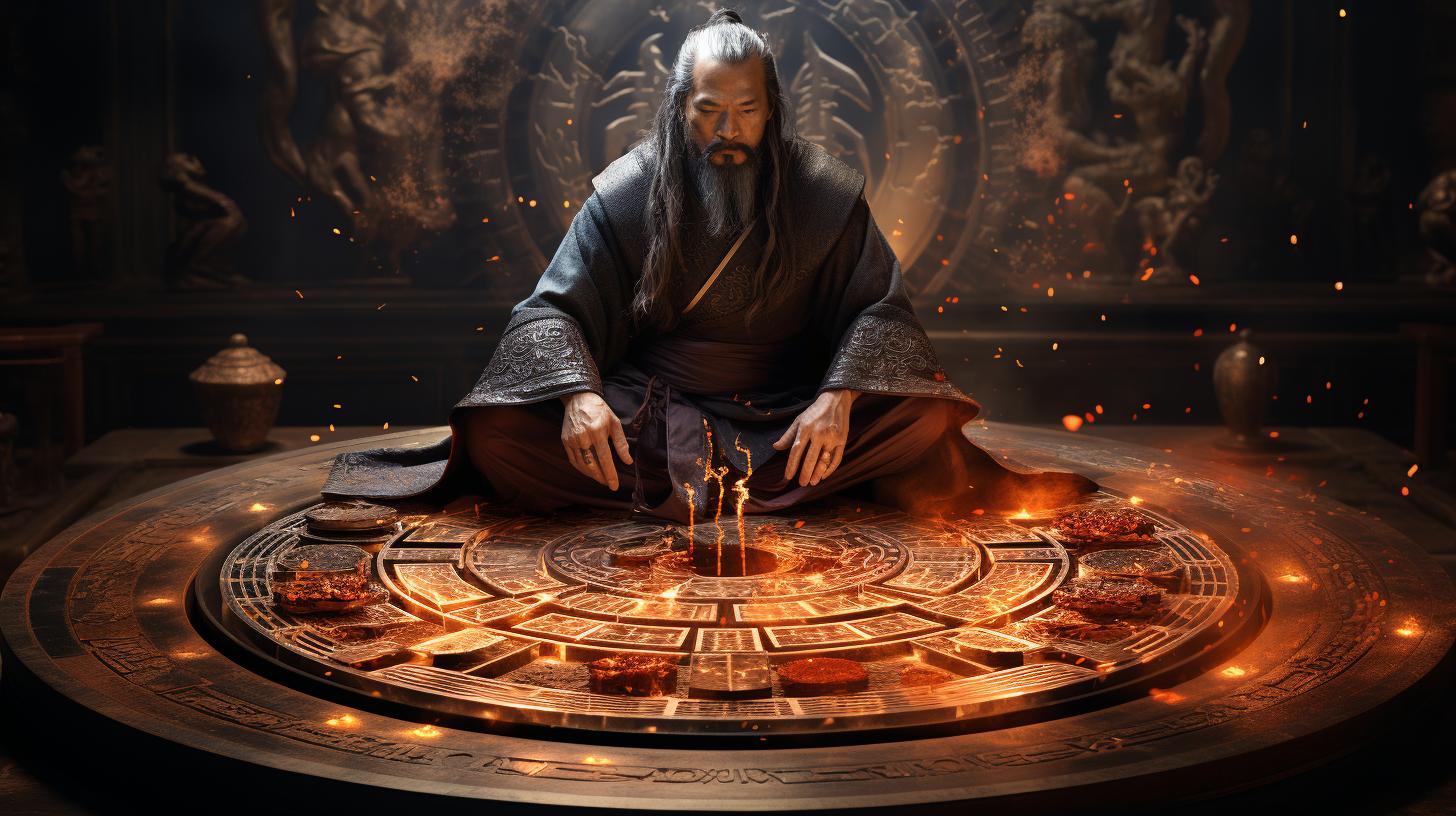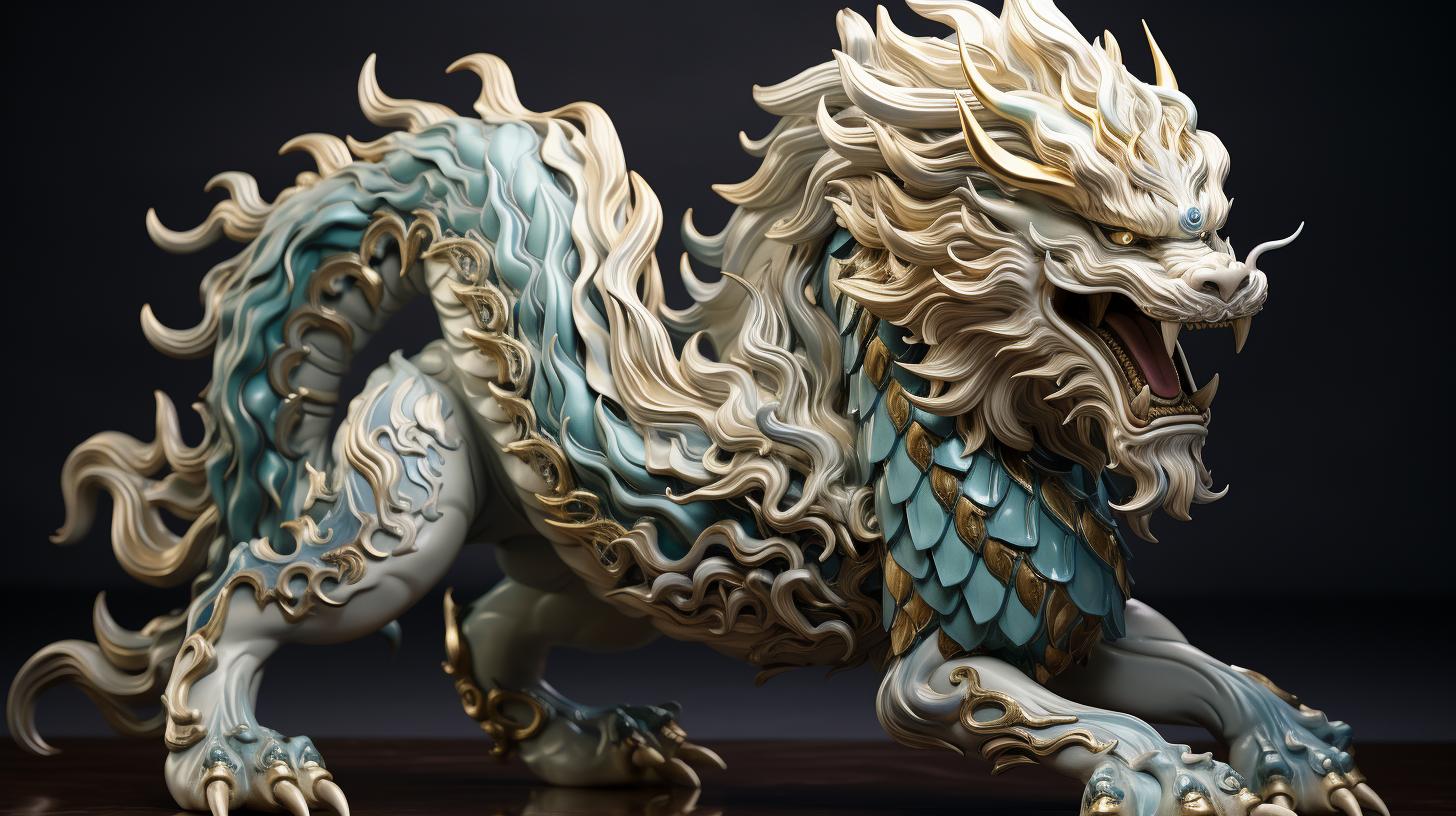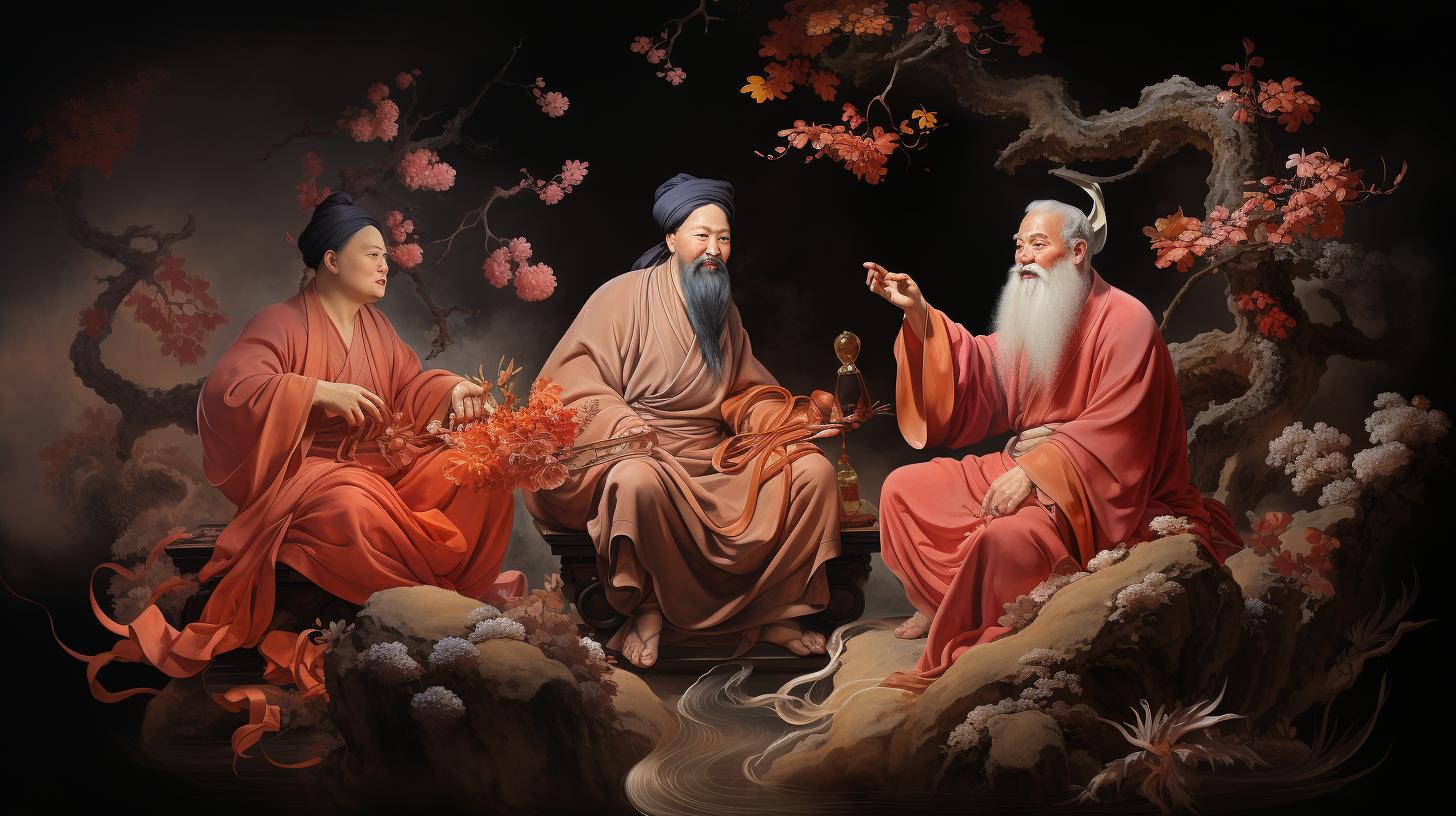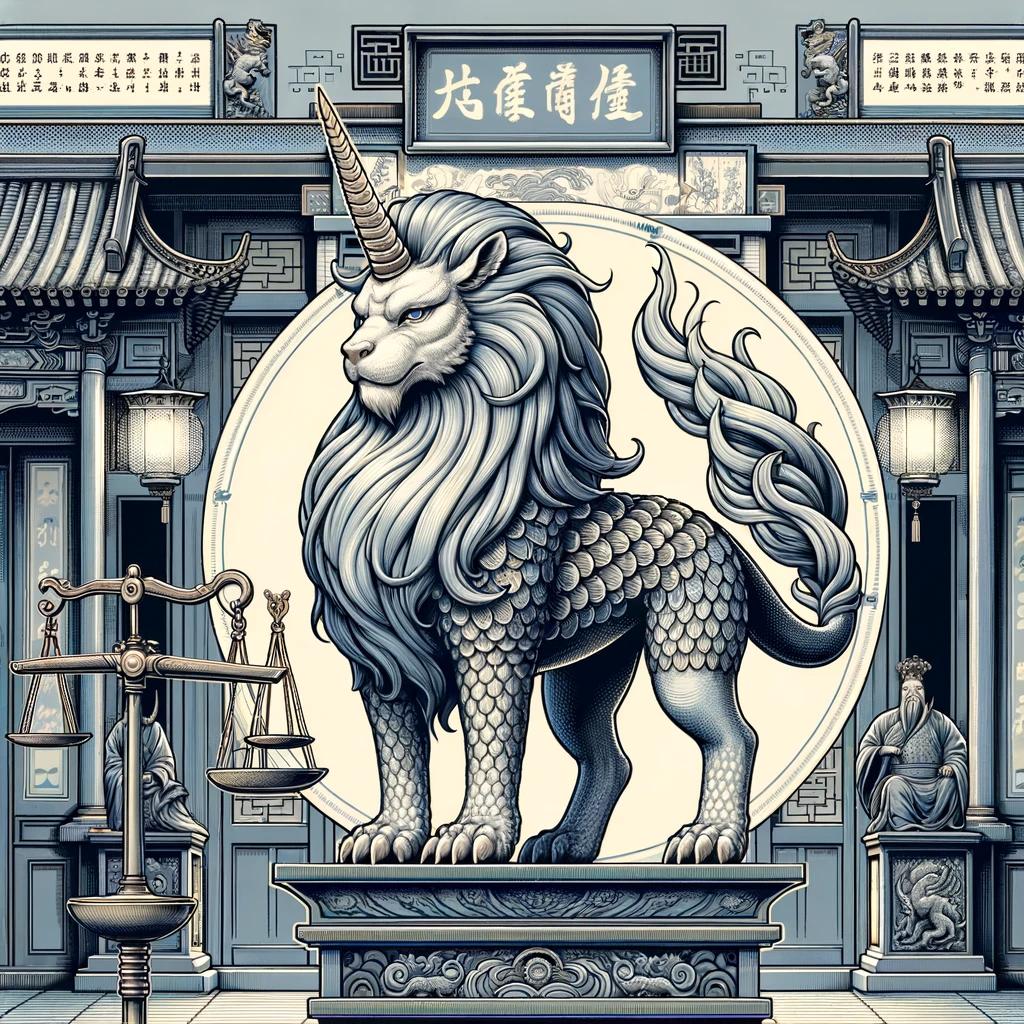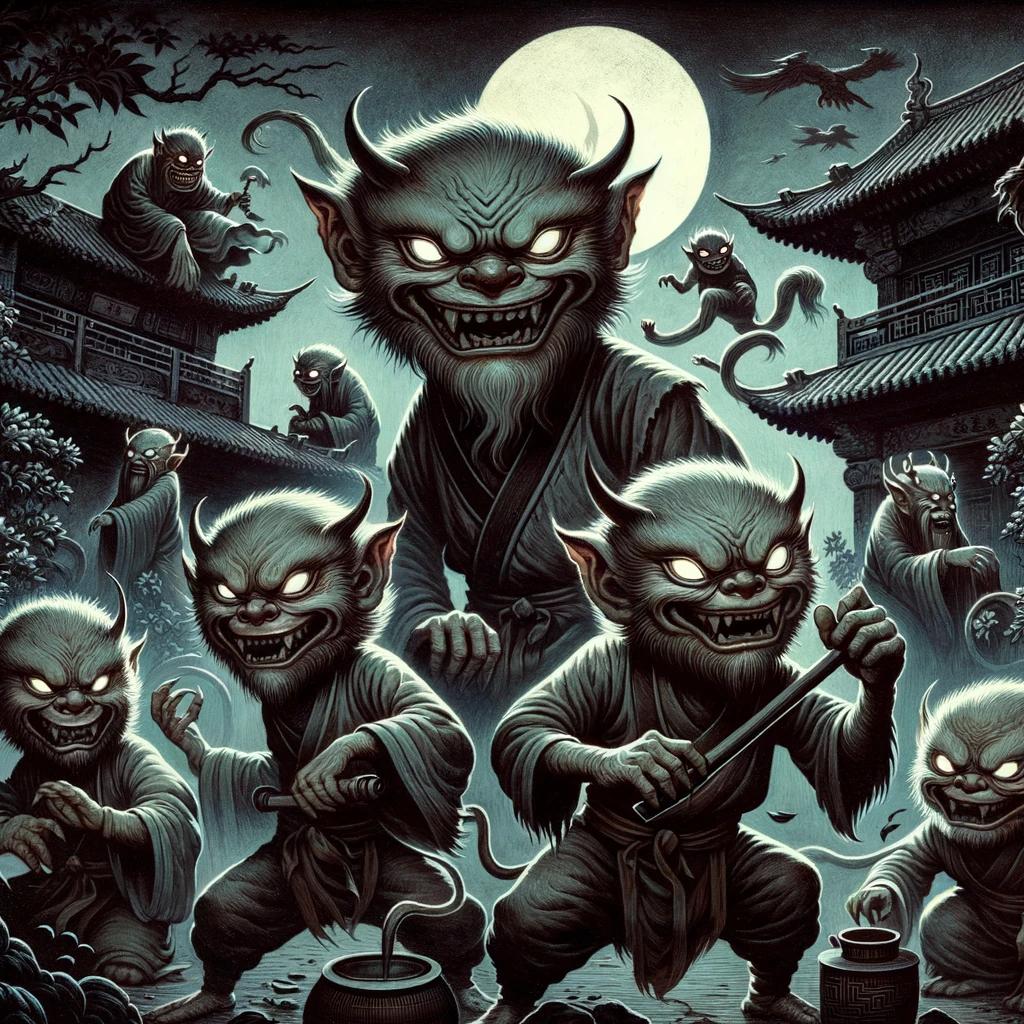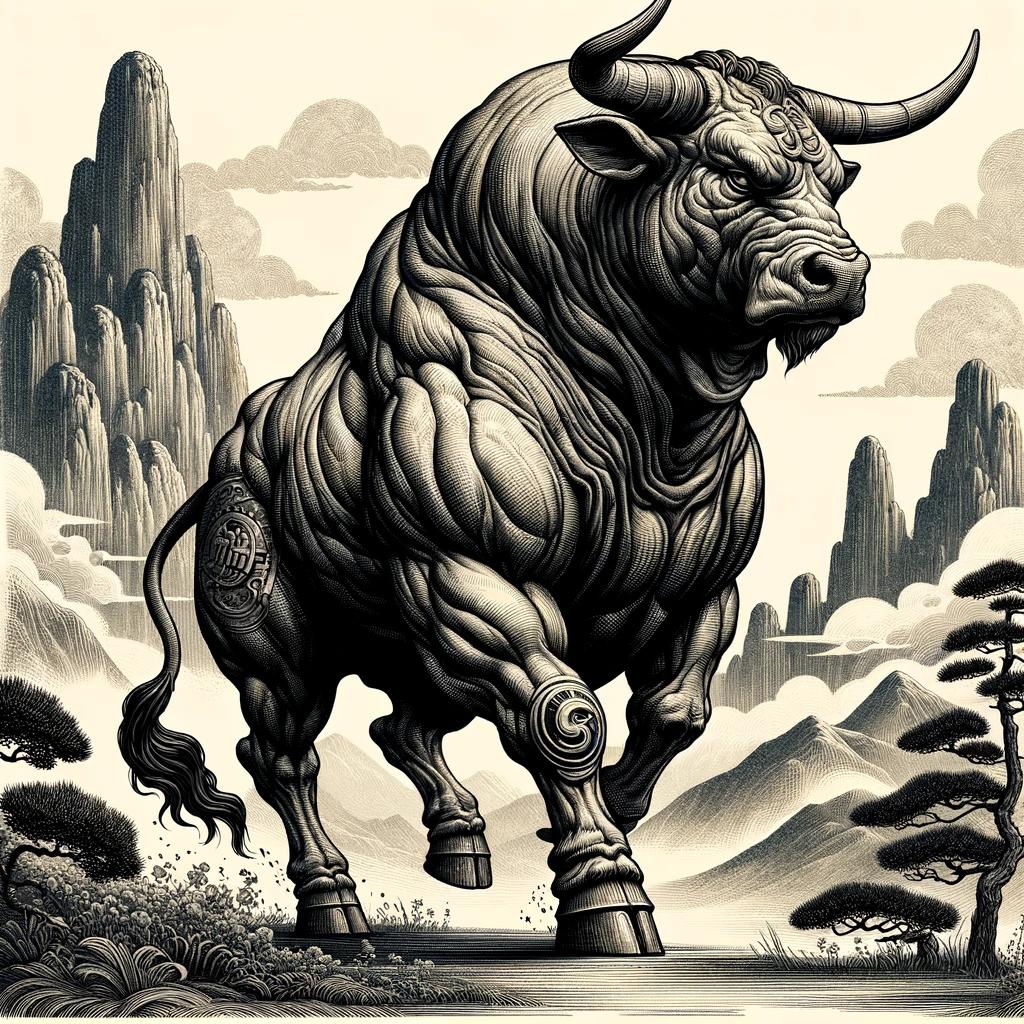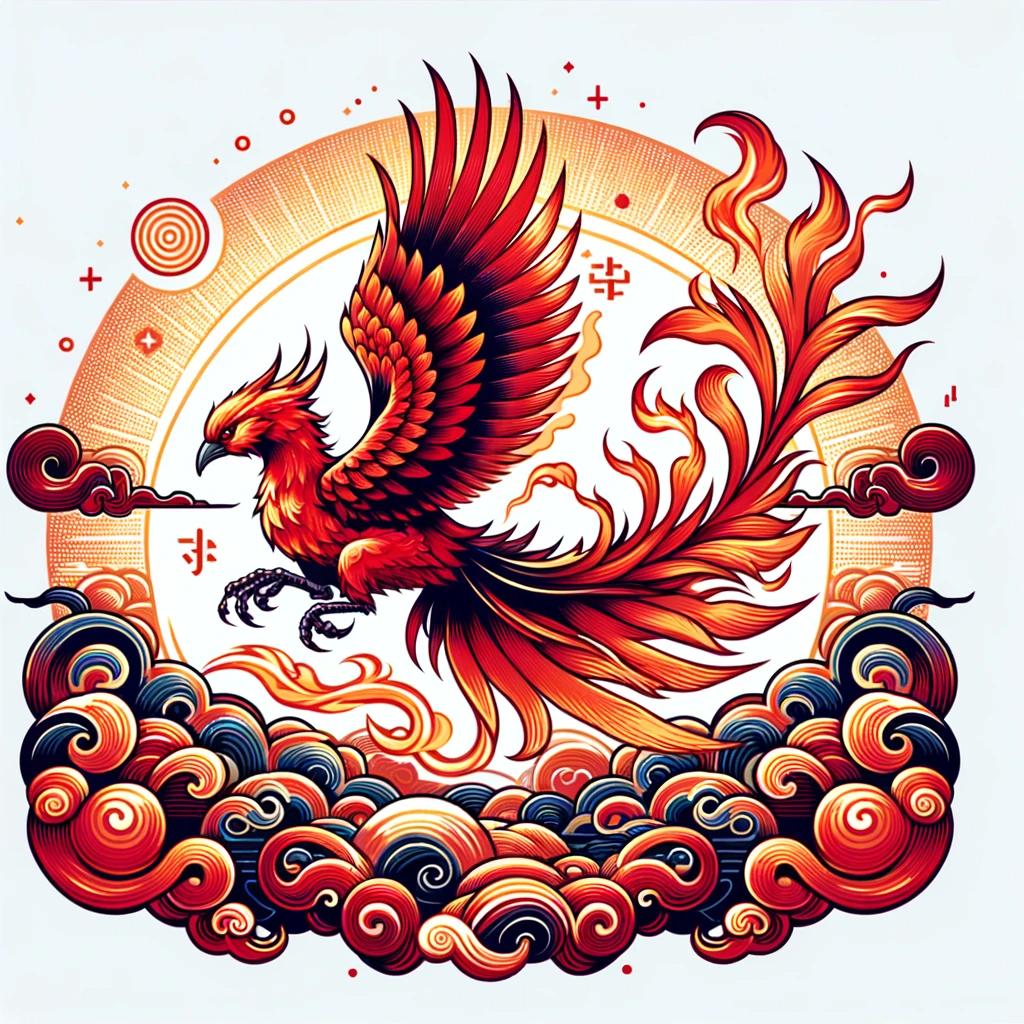The Leyend of Chiyou God in Chinese Mythology
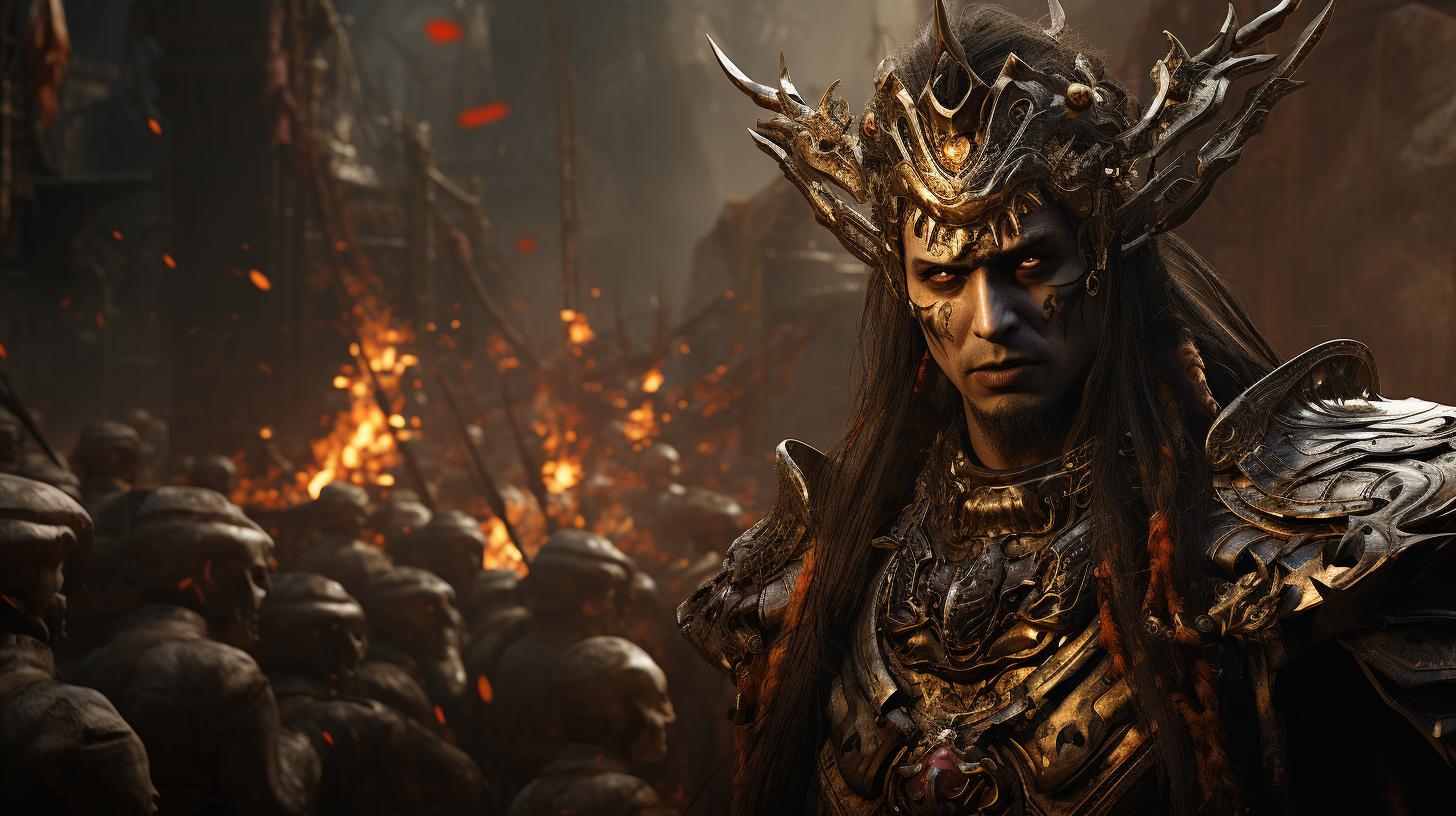
Chiyou god is a prominent deity in Chinese mythology, known as a warrior and leader of the Jiu Li tribe. With various descriptions of his appearance, Chiyou possessed great strength and was virtually invulnerable.
He was skilled in combat, particularly with swords, axes, and the Ge weapon. After a fierce battle against Yan Di and the Emperor Amarillo, Chiyou was ultimately defeated and beheaded. His significance lies in his association with rebellion, war, and the division of the Miao tribe.
Chiyou’s story continues to captivate and inspire reverence in Chinese folklore and popular culture.
The Legend of Chiyou God
The legend of Chiyou god is a fascinating tale deeply rooted in Chinese mythology. It encompasses various aspects such as the deity’s origins, mythology, and role within the Chinese pantheon.
Origins and Mythology
Chiyou god is believed to have been the leader of the Jiu Li tribe in ancient China. While the exact origins of Chiyou are shrouded in myth and legend, there are various accounts that describe him as a powerful warrior with supernatural attributes.
According to one legend, Chiyou was a descendant of Shennong, the legendary inventor of agriculture.
Variations in Appearance
Accounts about Chiyou’s physical appearance differ, with multiple variations mentioned in different stories. Some describe him as having eight bull legs, three heads, and six arms, while others depict him with two legs, one head, four eyes, and four arms.
Another portrayal presents Chiyou as a being with a bull’s head and wings. However, all versions consistently highlight his distinctive feature of having horns on his head.
Chiyou’s Role in Chinese Mythology
Chiyou was renowned for his exceptional skills in swordsmanship, axe usage, and the Ge polearm.
His bravery was well-known, and he never surrendered without putting up a fight. According to myth, Chiyou clashed with Yan Di in the legendary Battle of Ban Quan, where he displayed his martial prowess.
However, Chiyou eventually faced defeat at the hands of an alliance formed by Yan Di and the Emperor Amarillo.
Chiyou’s legacy lies in his association with rebellion and warfare. He introduced the concept of rebellion and imparted knowledge of combat to his followers.
Despite his defeat, Chiyou’s significance in ancient Chinese history cannot be overlooked, as his rebellion and subsequent defeat by the Emperor Amarillo led to the establishment of the Five Punishments for rebels.
Furthermore, Chiyou’s story extends into the culture of the Hmong people, where he is considered a deity associated with rain and credited as a descendant of Shennong. He allied himself with Yan Di and clashed with Huang Di in the Battle of Zhuolu.
Although Chiyou used his powers to create fog on the battlefield, Huang Di managed to navigate through with the help of a magical compass carriage. Ultimately, Chiyou was captured and defeated by Huang Di, with only Yinglong daring to deliver the final blow.
Chiyou’s defeat and capture by Huang Di and Yan Di led to the division of the Miao tribe into the Miao (Hmong) and the Li.
Chiyou god occupies a significant place in Chinese mythology and is acknowledged as a neutral deity with a high popularity index among worshippers.
Chiyou God’s Battle with Yan Di and the Emperor Amarillo
Chiyou god’s battle with Yan Di and the Emperor Amarillo is a legendary event in Chinese mythology that showcases Chiyou’s fierce warrior skills and unwavering bravery. This section explores the epic Battle of Ban Quan, Chiyou’s eventual defeat and decapitation, as well as the intriguing legends surrounding his death.
Epic Battle of Ban Quan
During the Battle of Ban Quan, Chiyou showcased his expertise in swordsmanship, axe handling, and the use of the Ge, a Chinese weapon similar to an alabard. His remarkable combat skills instilled fear in his enemies as he refused to surrender without a fight.
This battle marked the conflict between Chiyou, on one side, and Yan Di and the Emperor Amarillo on the other.
Chiyou’s Defeat and Decapitation
After an epic and grueling battle against the united forces of Yan Di and the Emperor Amarillo, Chiyou faced defeat. The Emperor Amarillo ultimately emerged as the victor and decapitated Chiyou, putting an end to his reign as the leader of the Jiu Li tribe.
This decisive defeat marked the downfall of Chiyou’s resistance against the ruling powers.
Legends Surrounding Chiyou’s Death
The legends surrounding Chiyou’s death are varied and intriguing. Some accounts suggest that the sky darkened, and the rivers turned red with blood during the intense battle. The Emperor Amarillo buried Chiyou’s head alongside his body, bestowing upon him the title of ‘Soldier Master’ or ‘God of War.’
Another version suggests that the Emperor Amarillo used the image of Chiyou on his banners to deceive enemies into believing he was leading the armies. Yet another version portrays the Emperor Amarillo performing mysterious acts upon Chiyou’s corpse after his death.
Chiyou God’s Legacy and Significance
Chiyou, the mighty deity of war in Chinese mythology, left behind a profound legacy and holds significant cultural and historical importance. This section explores various aspects of his legacy and the significance attached to his name.
Chiyou as the God of War
One of the key aspects of Chiyou’s legacy is his association with being the God of War. Renowned for his expertise in wielding weapons such as swords, axes, and the Ge, he embodied bravery and an unwavering refusal to surrender.
Chiyou’s mastery in combat made him a symbol of martial prowess and an inspiration for warriors throughout history.
Association with Rebellion and the Ancient Chinese Kingdoms
Chiyou played a crucial role in shaping the concept of rebellion and warfare in ancient China. Through his invention of weapons and imparting combat skills to his followers, he became an emblematic figure associated with rebellion against oppressive forces.
His clashes with figures like Yan Di and the Emperor Amarillo highlight his significant role in historical conflicts and the subsequent development of Chinese kingdoms.
Chiyou in Hmong Culture and Connection to Shennong
Interestingly, Chiyou also holds significance in Hmong culture, where he is associated with rain and is believed to be a descendant of Shennong, the legendary inventor of agriculture. Chiyou’s strong alignment with Yan Di and his participation in the Battle of Zhuolu against Huang Di further link him to the division of the Miao tribe into the Miao (Hmong) and the Li.
This connection showcases the cross-cultural impact of Chiyou’s story and his influence beyond the realms of Chinese mythology.
Popular Depictions and Worship of Chiyou God
Chiyou in Chinese Folklore and Popular Culture
Chiyou, the formidable deity of war in Chinese mythology, has captured the imagination of generations with his awe-inspiring might and invincibility. Tales of Chiyou’s battles, his unique appearance with multiple heads and arms, and his mastery of weapons have become a popular subject in Chinese folklore and popular culture.
In literature, Chiyou often appears as a symbol of strength, bravery, and unwavering determination. His legendary exploits and formidable presence have been portrayed in numerous novels, poems, and theatrical productions, further immortalizing his place in Chinese folklore.
Reverence and Worship of Chiyou
As a powerful deity associated with war and rebellion, Chiyou has garnered reverence from adherents who venerate his strength and courage. Although not a widely worshiped figure in mainstream Chinese religion, there are pockets of followers and cults dedicated to honoring Chiyou as a divine being.
Some believers view Chiyou as a patron deity of soldiers and warriors, seeking his protection and guidance in times of conflict. Ceremonies and rituals are performed to pay homage to his spirit, often accompanied by offerings to honor his enduring legacy.
Chiyou’s statues and images can be found in temples and shrines dedicated to his cult, where devotees seek blessings and strength from this god of war. These sacred spaces serve as reminders of Chiyou’s historical significance and the values he represents, inspiring individuals to face their challenges with bravery and resilience.
- Chiyou’s cult continues to attract followers, particularly among martial artists who draw inspiration from his combat prowess.
- During specific festivals or events, devotees may participate in elaborate processions and performances to showcase their devotion to Chiyou.
- Some practitioners of traditional Chinese medicine also invoke Chiyou’s spirit for healing and protection.
FAQs and Common Questions about Chiyou God
Explore some common questions and answers about Chiyou god and his significance in Chinese mythology.
What were Chiyou’s special abilities and weapons?
Chiyou possessed exceptional combat skills and was proficient in wielding various weapons. He was known for his expertise in swordsmanship, axe handling, and the use of the Ge, a Chinese polearm.
Chiyou’s incredible strength and invincibility made him a formidable warrior in battle.
How did Chiyou’s defeat lead to the division of the Miao tribe?
After Chiyou’s defeat by Yan Di and the Emperor Amarillo, the Miao tribe, of which Chiyou was the leader, faced internal division. The defeat marked a significant turning point, leading to a split between the Miao (Hmong) and the Li tribes.
Is Chiyou worshipped in modern-day China?
While Chiyou is a revered figure in Chinese mythology, there is no concrete evidence of active worship in modern-day China. However, Chiyou continues to hold cultural significance, and his tales are often celebrated and explored in various forms of art and literature.
What is the significance of Chiyou’s connection to the Emperors Yan Di and the Emperor Amarillo?
Chiyou’s connection to Yan Di and the Emperor Amarillo is marked by the epic battle that led to his defeat. The defeat at the hands of these esteemed emperors solidified their dominance and symbolized the triumph of order over rebellion, shaping the course of ancient Chinese history.
How does Chiyou’s story relate to other myths in Chinese mythology?
Chiyou’s story intertwines with various myths in Chinese mythology, particularly those related to ancient battles and the concepts of rebellion and war. His legendary defeat at the hands of Yan Di and the Emperor Amarillo showcases the ongoing struggle between chaos and order in Chinese folklore.
Are there any historical evidences of Chiyou’s existence?
As a mythical figure, the existence of Chiyou is steeped in legends and folklore. While there is no concrete historical evidence of his existence, the enduring tales and cultural significance of Chiyou have made him an integral part of Chinese mythology and storytelling traditions.
.











